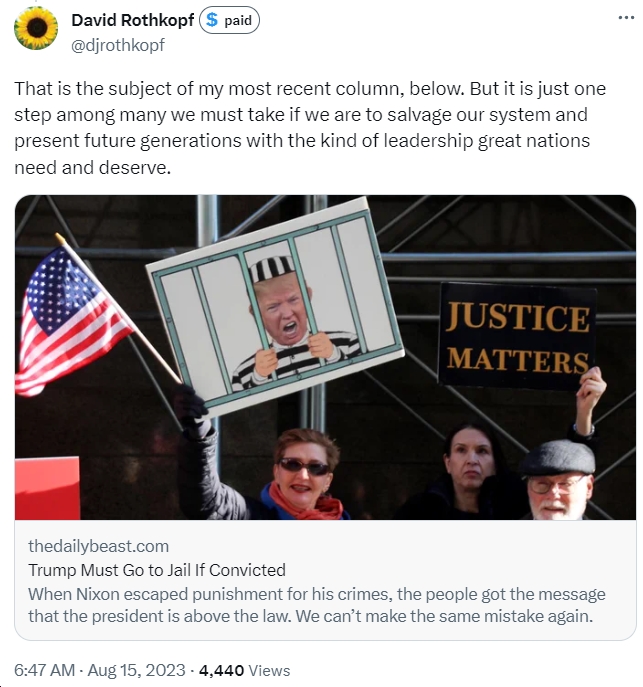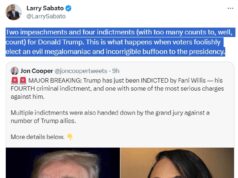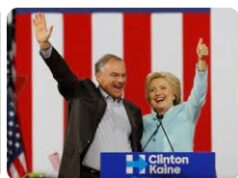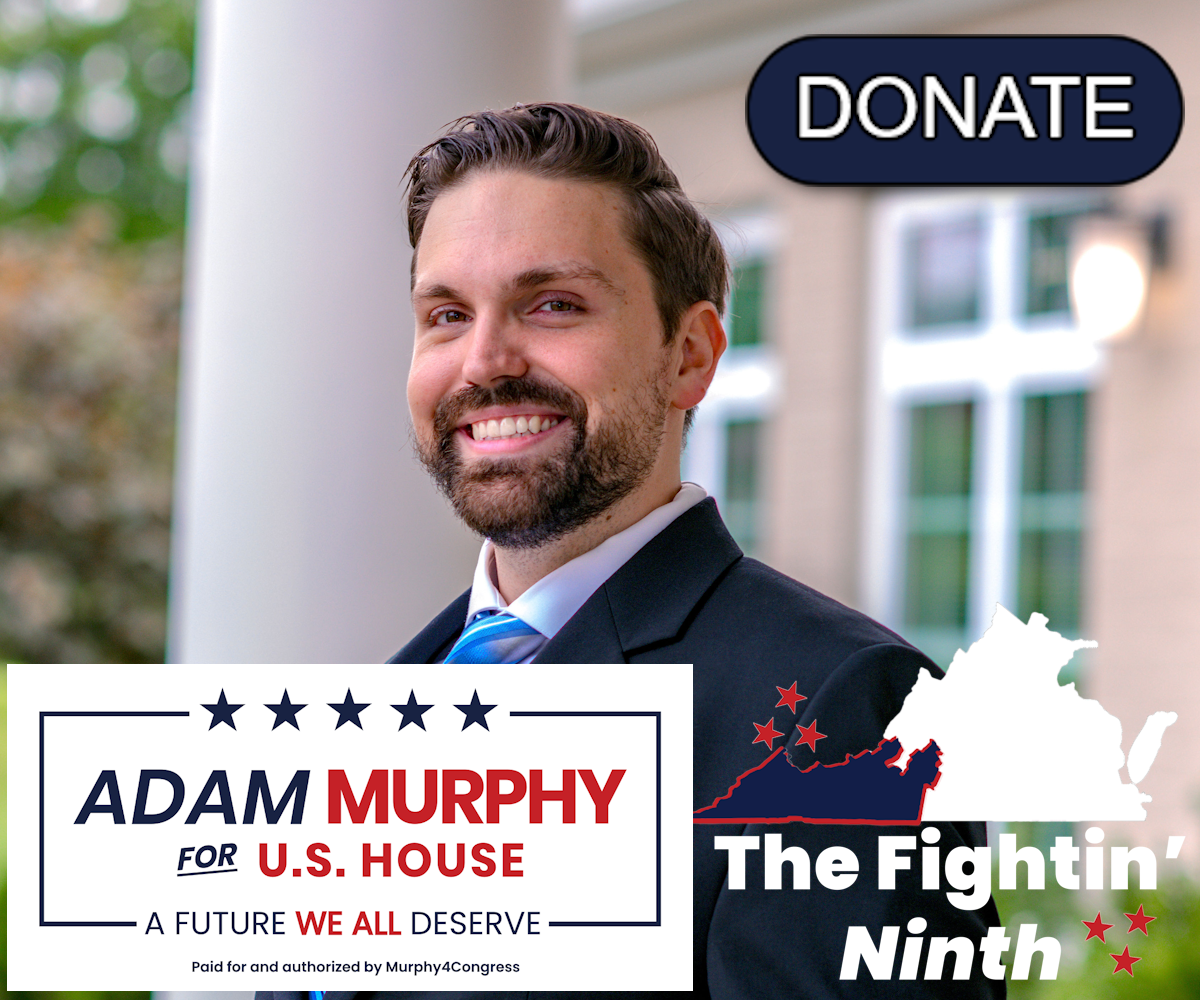With the 2019 Virginia elections in the rear-view mirror, it’s time to start looking ahead to 2020, including the Democratic campaigns for president. So far, Cindy and I have looked at Michael Bloomberg, Kamala Harris, Amy Klobuchar, Pete Buttigieg, Joe Biden and Elizabeth Warren. Today, I’ll focus on Sen. Bernie Sanders’ campaign, and whether Democratic primary voters appear to be “feeling the Bern” this time around.
First off, since this is a Virginia-focused blog, it’s worth noting that Sen. Sanders campaigned here in Virginia (with Qasim Rashid, Del. Elizabeth Guzman and Del. Lee Carter) in Manassas a few hours before polls opened on 11/5. Thanks to Sanders for doing that, and to all the other 2020 Democratic candidates who helped out as well.
Now, some general thoughts on Sanders and his campaign for president.
- In 2016, Sanders morphed from a minor candidate to a serious challenge for Hillary Clinton, winning 23 contests, 13.2 million votes and 1,865 delegates. “Bernie” also became a cultural phenomenon and, in many ways, a mass movement, with a highly passionate following and a famous – and hilarious! – Larry Davis impersonation (see below).
- Now, four years later, the question is whether the Bernie Sanders phenomenon of 2015/2016 can be continued and built upon. The big difference between 2019 and 2015, of course, is that this time around there are a LOT more Democrats running, including progressive Elizabeth Warren, who if you recall was the favorite of super-progressives in 2015…until she decided not to run and Bernie jumped in, instead. The big question this time around for Sanders is whether, with Warren – and many others – in the race, as opposed to essentially a mano-a-mano contest against Hillary Clinton, he can both hold on to – or even expand – his 2015/2016 base. So far, it’s looking more like that base has splintered to an extent, with a chunk of it going to Warren.
- Also worth noting in terms of differences between the 2020 and 2016 presidential races, by the way, is that this time around the White House is occupied by a true menace to democracy, the planet, the rule of law, you name it, in Donald Trump. So, while in 2015 at this point, many Democrats didn’t seem to feel the urgency of the nominating contest, this time around it feels extremely urgent, even existential, with most Democrats prioritizing the nomination of a candidate who CAN BEAT TRUMP. That alone gives this year’s Democratic presidential primaries a very different feel – and reality, I’d argue – from 2015/2016.
- Oh, and worth pointing out is that in 2015/2016, many Democrats viewed the DNC as siding with Hillary Clinton, while this time around, there’s minimal if any discussion about that. There’s also no dominant front-runner this time around, no “heir apparent”.
- One last difference from 2015/2016 is that, four years later, Sanders is now 78 years old now, raising more questions about his age and health, especially given that he recently (on October 1) had a heart attack as well. Sanders seems to be ok physically, and there’s also no sign the heart attack hurt him much – if at all – politically (his poll numbers have barely budged, dipping by only about a point, from 17.5% on September 30 to 16.3% on December 1).
- Sanders has been in Congress a loooong time (since 1991), winning a U.S. Senate seat in 2006, then winning reelection in 2012 and 2018. So clearly, he’s very popular in Vermont; the question is whether this can translate into a successful run for president towards the end of that loooong political career.
- The core arguments for Sanders’ electability are well-summed-up by Krystal Ball: 1) Sanders’ “appeal seems to be particularly strong in ‘blue wall’ states that the party must win back,” including Michigan and Wisconsin, both of which Sanders won in the 2016 Democratic primaries; 2) “Sanders has massive grassroots enthusiasm that outstrips any other campaign”; 3) Sanders “consistently outperforms with independents and working-class voters”; and 4) “Incrementalism and aging Obama-nostalgia isn’t going to get a Democrat to the White House in 2020. Political revolution just might.”
- As for the ideological/political arguments for Sanders, this Atlantic article sums it up well: 1) “history shows that political and social change emanate from persistent pressure—organizing and arguing for a more just world, not settling for what is deemed ‘realistic’ before getting to the negotiating table”; 2) “With Sanders, there is no question he will push for meaningful progressive change. No candidate can guarantee passage of their platform—but at least Sanders makes change possible”; 3) “Sanders has consistently demonstrated leadership, speaking out, introducing legislation, and laying the political groundwork on a wide array of issues, including: gay rights (long before they gained mainstream support), workers’ rights and union rights, universal single-payer health care, family and medical leave protections, and expansions of Social Security. On nearly every major issue—labor and economic justice, to the Iraq War and the Patriot Act, welfare reform, NAFTA, the Keystone XL pipeline, and the Transpacific Partnership—Sanders has taken clear consistent stands”; 4) “it is entirely pragmatic to expect a President Bernie Sanders to fight hard for the justice and equality issues he has championed his entire political life—giving these ideas a chance, rather than no chance at all.”
- Sanders describes himself as a “Democratic Socialist”: “who admires the Nordic model of social democracy and has been a proponent of workplace democracy…In defining what democratic socialism means to him, Sanders said: ‘I don’t believe government should take over the grocery store down the street or own the means of production, but I do believe that the middle class and the working families who produce the wealth of America deserve a decent standard of living and that their incomes should go up, not down. I do believe in private companies that thrive and invest and grow in America, companies that create jobs here, rather than companies that are shutting down in America and increasing their profits by exploiting low-wage labor abroad.'”
- The polling since late 2018 has had Sanders in second place (behind Joe Biden) much of the time, and in third place (behind Biden and Elizabeth Warren) from mid-September to mid-November. Sanders’ poll numbers have ranged from a low of about 14.6% in mid-May to a high of 24.0% back in March. Right now, according to the Real Clear Politics polling average, Sanders’ 16.2% share of the Democratic primary electorate puts him behind Joe Biden (27.2%), but ahead of Elizabeth Warren (14.0%), Pete Buttigieg (11.4%), Kamala Harris (3.4%) and Michael Bloomberg (3.4%). In Iowa, Sanders is currently at 18.3%, behind Buttigieg (24.0%), but ahead of Warren (17.7%) and Biden (16.3%). In New Hampshire, Sanders (17.0%) trails Buttigieg (20.0%), but leads Warren (14.3%) and Biden (13.7%). In contrast, in South Carolina, where the Democratic electorate is heavily African-American, Sanders (12.8%) trails Biden (35.3%) and Warren (16.3%), while leading Buttigieg (6.5%) and Harris (6.3%).
- In the latest Quinnipiac poll, Sanders has 11% of the national African-American vote, trailing Biden (who has a whopping 43% of the black vote), but leading Warren (6%), Harris (5%), Buttigieg (4%), Booker (3%), etc. In contrast, Buttigieg leads among white voters with 23% in the Quinnipiac poll, compared to 19% for Biden, 18% for Warren, 12% for Sanders and 5% for Amy Klobuchar.
With that, see below the video for some key Sanders positions on the issues, as well as interest group ratings, key legislative achievements and votes, etc.
- Sanders has a very strong, 95.69% lifetime progressive score from Progressive Punch, and an “A” rating relative to “State Tilt.” On specific issues, Sanders has received 100% from NARAL and Planned Parenthood, 100% from the Human Rights Campaign, 13% from the NRA in 2018, 100% from many environmental groups, 100% from the National Education Association, 100% from the Humane Society Legislative Fund in 2018, etc.
- Greenpeace gives Sanders an “A+” grade on the climate crisis, ranking him first among all Democratic 2020 presidential candidates: “Sen. Sanders released a bold plan to invest $16 trillion in a Green New Deal to usher in 100% renewable energy in a decade, phase out fossil fuel production for good, and prioritize workers, communities of color, and Indigenous communities in a just and inclusive transformation of the economy. He committed to immediately end federal fossil fuel subsidies, halt new oil, gas, and coal projects, and ban harmful fracking and mountain-top removal practices while planning for a just and managed phase-out of fossil fuel extraction. He pledged to hold fossil fuel companies accountable and make them pay for their contributions to the climate crisis. Sen. Sanders championed climate action for years in Congress, including co-sponsoring the ‘100 by ‘50 Act’ and ‘Keep It In the Ground Act.'” Impressive!
- In the polling, Sanders consistently beats Trump by a healthy margin: +8.5 points in the 10/17-11/21 time period – higher than Warren’s +7.3 points and Buttigieg’s +4.0 points, but lower than Biden’s +9.9 points. So that’s very good.
- Sanders “is known for his opposition to economic inequality. On domestic policy, he broadly supports labor rights, and has supported universal and single-payer healthcare, paid parental leave, tuition-free tertiary education, and an ambitious Green New Deal to create jobs addressing global warming. On foreign policy, he broadly supports reducing military spending, pursuing more diplomacy and international cooperation, and putting greater emphasis on labor rights and environmental concerns when negotiating international trade agreements.”
- Some legislative highlights from Sanders’ lengthy career include: “Sanders voted against the resolutions authorizing the use of force against Iraq in 1991 and 2002, and he opposed the 2003 invasion of Iraq.”; “Sanders was a consistent critic of the Patriot Act. As a member of Congress, he voted against the original Patriot Act legislation.”; Veterans – “Landmark legislation was passed in 2014 to help the Department of Veterans Affairs serve America’s aging population of veterans and to meet the needs of a new generation of men and women who served in Iraq and Afghanistan”; “Less than a decade before the 2008 Wall Street financial crisis that caused the Great Recession, Sanders voted against a bill (S. 900) that undid decades of financial regulations enacted after the Great Depression”…
- On a less positive note for many progressives, Sanders voted against the Brady Bill, “which mandated federal background checks when buying guns and imposed a waiting period on firearm purchasers in the United States; the bill passed by a vote of 238–187. He voted against the bill four more times in the 1990s, explaining his Vermont constituents (high on hunting, low on homicide) saw waiting-period mandates as more appropriately a state than federal matter.” As this May 2019 NBC article points out, Sanders’ past gun votes “are again a potential liability among [the] Democratic base,” and his “past opposition to legislation to punish gun manufacturers could be a particular obstacle for energized young voters.”
- How effective Sanders has been in the U.S. Senate? According to this 2016 NY Times article: “he has often been an effective, albeit modest, legislator. He has enacted his agenda piece by piece, in politically digestible chunks with few sweeping legislative achievements in a quarter-century in Congress. Over one 12-year stretch in the House, Mr. Sanders passed more amendments by roll call vote than any other member of Congress…Big legislation largely eludes Mr. Sanders because his ideas are usually far to the left of the majority of the Senate — from his notions about bank regulations, to the increase he seeks to the minimum wage, to his attempts to get the federal government in the business of providing rebates for the purchase and installation of solar heating systems. But from his days in the House, where he served from 1991 to 2007, and into his Senate career, Mr. Sanders has largely found ways to press his agenda through appending small provisions to the larger bills of others.”
- UPDATE: From the comments section – “One major plank of Bernie Sanders’s platform that this article misses is to end legalized bribery in politics. A major part of that is a constitutional amendment to overturn Buckley v. Valeo which erroneously says that money is speech protected under the First Amendment, and Citizens United v. Federal Election Commission which states that corporations can spend unlimited money in elections by stating that money is not speech protected under the First Amendment, and that corporations are not people. See https://berniesanders.com/i… for his plan to end legalized bribery in politics.”
- On healthcare, “In September 2017, Sanders along with 15 Senate co-sponsors submitted the Medicare for All bill, a single-payer health care plan.” Clearly, if you favor “single-payer” or Medicare for All, this is a big positive. If you, instead, support building on the Affordable Care Act with a public option or support a “Medicare X”-type plan, as Sen. Tim Kaine advocates, then you’re probably not particularly enthused about Sanders’ “Medicare for All” bill.
- In terms of fundraising, Sanders has been a small-dollar-donor powerhouse, both in his 2015/2016 run and now in 2019, leading everyone in the Democratic field other than billionaire Tom Steyer as of mid-October 2019.
- Are Democratic primary voters “feeling the Bern” for 2020? To an extent, yes, as evidenced by Sanders’ fundraising and poll numbers, putting him in the top-tier of candidates this time around. But as already mentioned – in such a large field, with another strong progressive (Elizabeth Warren) apparently splitting the “left,” the question is whether Sanders has room to grow his support, and can successfully do so – or not.
With that…what do you think about Bernie Sanders’ 2020 candidacy? Are you “feeling the Bern,” or does Sanders perhaps give you heart-Bern? LOL
















